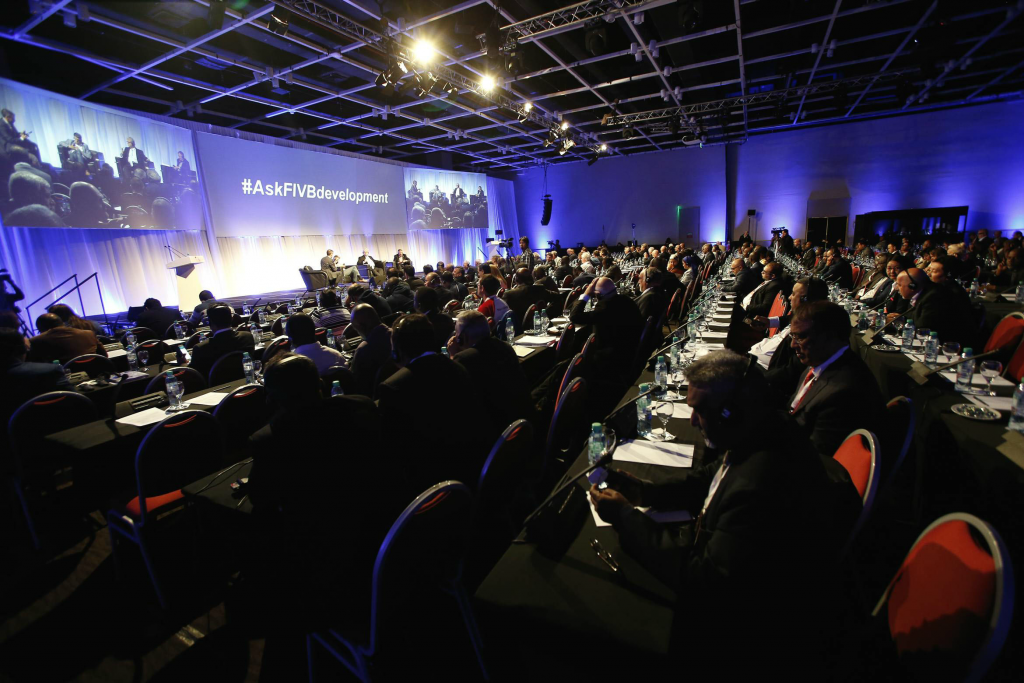Speaking at a conference is a big opportunity. My friend and fellow public speaker, Jack Vincent, is an expert in sales and marketing. Jack recently wrote a post in his blog offering eight tips for those speaking at a conference. The post was born of a frustrating experience:
I returned from a major industry conference two days ago. Was I disappointed! While the networking was good, the presentations overall were … average. And “average” is so far below the potential of anyone who speaks at a conference. Yet time and time again, the vast majority of conference presentations fall in to the abyss of meaningless … boring … forgotten.
Jack did note that there were a few people who cared about their presentations, but they were the exception rather than the rule. Sound familiar?
Rather than let it pass, Jack took the time to write down eight tips for anyone speaking at a conference. They are worth considering. A conference is an ideal place to get your message across, strengthen your personal brand and develop clients. Here are Jack’s tips in summary form:
1. Prepare
Dedicate time to your presentation. Winston Churchill used to prepare one hour for every one minute of speech; while this is probably unrealistic for many of us today, the point is valid. Don’t wing it!
2. Know thy audience
Be audience-focused. Who is your audience? What will motivate them or shock them or make them laugh? What will make them think or realize they have a need they hadn’t considered?
3. What’s the big idea?
What big point do you want the audience to remember two days later? You should have one big point. Everything else should support it. If it doesn’t, get rid of it.
4. Edgy is good
If 50% of your audience is happy that somebody is finally saying this in public, and 50% can’t believe this presenter has the audacity to suggest they should move away from their comfort zone, you will be noticed. You will build your brand. What do you stand for? Make it clear. Make it edgy.
5. Don’t sell from the podium
This is counter-intuitive to some. After all, why else should you be investing this time and brain-power? Paradoxically, the best way to sell in this environment is to show and not tell. If you’ve got something innovative to say, you’ll be building your brand and generating leads. But if you try to sell from the podium, people will walk out on you.
6. Spare me the bullets!
Use PowerPoint the way it should be used, as an engager, not a crutch for remembering your speech! Slides are meant to lead, not read. You are the messenger. Your slides are the backdrop.
7. Deliver on your promise
The title of your presentation is, essentially, a promise. If you don’t deliver on your promise, you will have breached the audience’s trust. Fulfill your promise.
8. Rehearse
This goes beyond preparing. Preparation could be interpreted to mean researching, composing, creating a PowerPoint deck, etc. Rehearsing means closing the door, looking in the mirror and running through it … with no excuses. Rehearsing means asking family members or office mates to sit and observe. Sure, this is a bit uncomfortable. But knowing half-way through your presentation that the whole thing would be going better if only you had prepared is much more uncomfortable.
As Jack says, “Speaking at a conference is a golden opportunity to accomplish what entire marketing departments die for: lead generation and brand building. Don’t squander it. Capture it!”

















3 Replies to “Tips for Speaking at a Conference”
I like the clarity and “to the point, no nonsense” advice from Jack. And it has me inspired to put more preparation into being a contestant for the upcoming TM Area Contest in Bern. Thank you for an interesting blog, both John and Jack.
Thanks very much, Cindy, and best of luck in Bern!